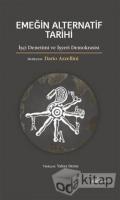Coperativas
When Workers Take Over
Commoning Labour and Democracy at Work
Interview mit Dario Azzellini, 33 min.
Mit Genossenschaften zum Ökosozialismus – Perspektiven
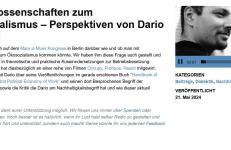
Mit Genossenschaften zum Ökosozialismus – Perspektiven / Radio Corax
You are missing some Flash content that should appear here! Perhaps your browser cannot display it, or maybe it did not initialize correctly.
Audiomitschnitt der Veranstaltung vom 15.5.2024, 41 min.
Azzellini und IDA: Rätedemokratie und Arbeitszeitrechnung
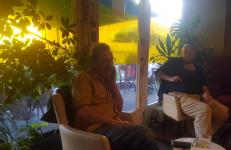
Audiomitschnitt Azzellini und IDA (Initiative Demokratische Arbeitszeitrechnung)
Am 15.5.2024 hatten wir Dario Azzellini in Berlin zu Gast und haben mit ihm über Rätedemokratie und Arbeitszeitrechnung gesprochen. Wir teilen mit euch hier den Audiomitschnitt der Veranstaltung.
41 min.
Interview mit Dario Azzelini
Genossenschaften – Arbeiterkontrolle oder Businessmodell?
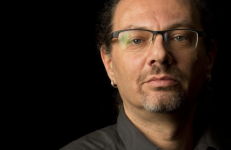
Über transformative Kräfte der Selbstverwaltung und der Integrationskraft des Kapitalismus. Dritter Teil der siebenteiligen Serie über selbstverwaltete Betriebe in Europa.
Interview with Dario Azzellini
Yes We Can: Worker-Owned Coops
Founded in 1973, (yes, that’s 45 years ago!) the Park Slope Food Coop is one of the oldest and largest consumer food coops in the country. It’s a presence in our lives, the source of our food, and a center for community engagement. And it’s also part of a larger coop movement that stretches back in time and exists in many parts of the world.
Aktuelle Analyse zu rückeroberten Betrieben. Gespräch mit Dario Azzellini
„Sie sind nicht nur Arbeitskräfte“

AT: Du dokumentierst in deiner Arbeit rückeroberte Betriebe in Europa und Lateinamerika. Ist das so bewusst geographisch gewählt, oder gibt es in den anderen Teilen der Welt weniger Beispiele?
Berlin, May 2024
Notes from an event with Dario Azzellini and the Initiative for Democratic Labour Time Accounting

We document these notes from a recent discussion event. We appreciate that the international discussion about transition is widening and becoming more concrete. When it comes to the recuperated factories in Argentina it would be good to sharpen the political criteria. Which factories are still engaged in a wider political movement for a general social transformation and why?
İşçi Denetimi ve İşyeri Demokrasisi
Emeğin Alternatif Tarihi
Konsey komünizmi, anarko-sendikalizm, İtalyan operaismo’su ve diğer “heretik” sol akımlar yoluyla Paris Komünü hakkındaki yazılarını izleyen “Emeğin Alternatif Tarihi”, şimdiye kadar görmezden gelinen tarihsel ve çağdaş otonom işçi hareketlerinin uygulama ve amaçlarını açığa çıkarmaktadır. Bu kitap, işçilerin işyerlerinde süreklilik ve öngörülebilirliği sağlayarak katılımcı demokrasinin anlatımı üzerinden kendi topluluklarını stabilize edebileceğini göstermektedir.
Worker Control and Workplace Democracy. An Alternative Labour History
Over the past 135 years, in all kinds of historical situations and during various political and economic crises and in different political systems, workers have taken control of their workplaces. Yet this story of workers self-administered production is rarely told. Capitalists, bourgeois governments and administrators of systems based on the exploitation of workers usually have little interest in disseminating the history of self-organized workers; those who have successfully run factories without bosses.
Вернуть себе фабрику: рабочий контроль при нынешнем кризисе
An Alternative Labour History: Worker Control and Workplace Democracy: chapter 2 in Russian
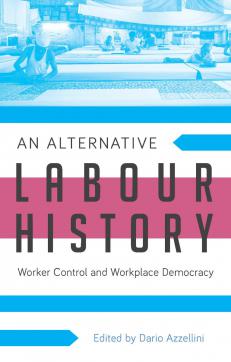
Перед вами отрывок из новой книги Дарио Аццелини «Альтернативная история труда: рабочий контроль и демократия на предприятии», недавно опубликованной издательством Zed.

